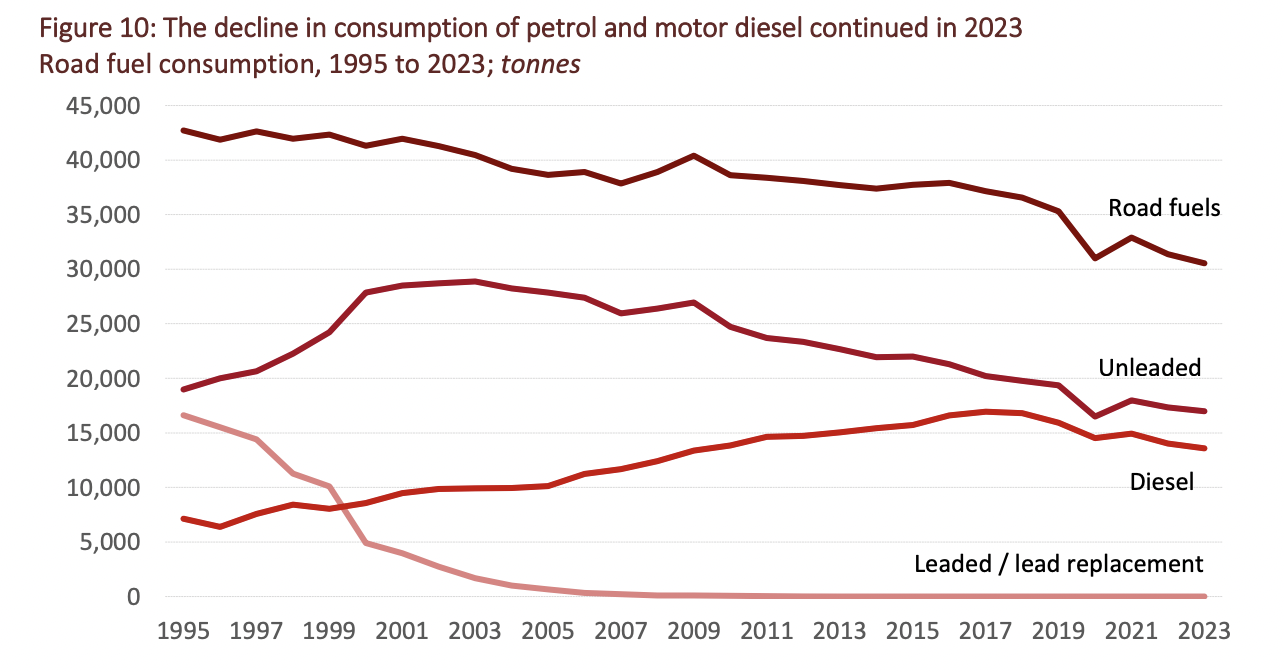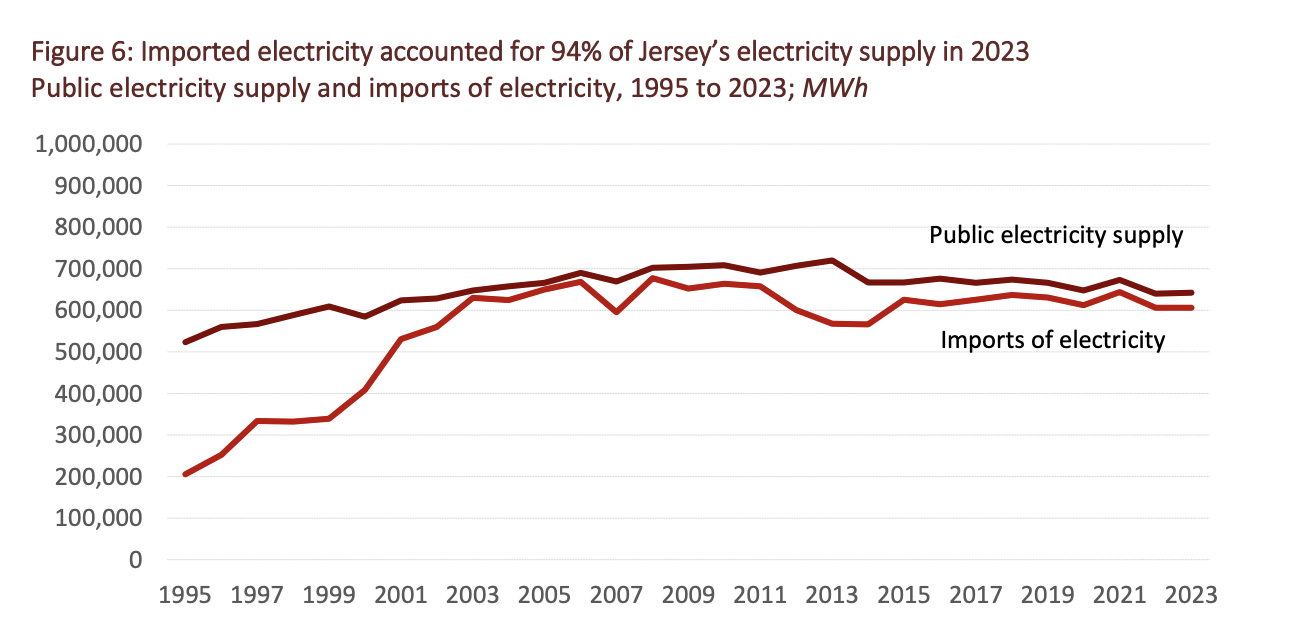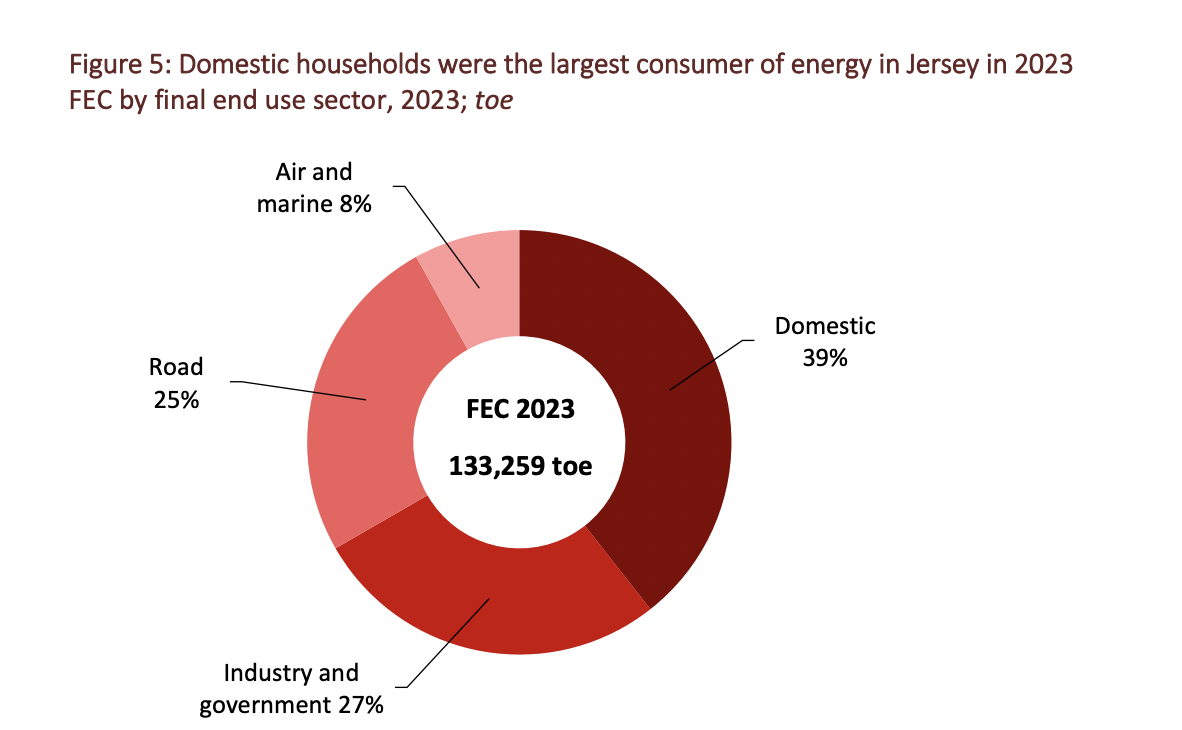


Energy consumption per head of Jersey’s population decreased slightly last year, according to a new report.
Published this week, Statistics Jersey’s Energy Trends report for 2023 showed that total energy consumption was 2% less last year than in 2022.

Pictured: Household final energy consumption was the lowest it has been for five years. (Statistics Jersey)
Energy consumption per head of the resident population was 1.3 toe (tonne of oil equivalent) – which was lower than 1.4 toe in 2021, the same as 2022, and lower than the UK at 1.8 toe.
Almost all of Jersey’s energy supply continued to be imported, with 3% produced locally as electricity generated by the Energy Recovery Facility and Jersey Electricity solar panels.

Pictured: Imported electricity accounted for 94% of Jersey's electricity supply in 2023. (Statistics Jersey)
The total primary energy supply – defined as the total energy a jurisdiction imports and produces from its own natural resources – was 137,033 toe.
This was 1% less than the previous year at 139,055 toe.
This compares with 154,092 in 2019, 138,926 in 2020, and 147,572 in 2021.
Petroleum products accounted for about three-fifths of Jersey’s energy supply while electricity (imported and locally generated) accounted for the remainder.
Of total energy used, nearly two-fifths (39%) was by households, a third (34%) for transportation (predominantly road), and just over a quarter (27%) by industry and government.

Pictured: Domestic households were the largest consumer of energy in Jersey in 2023. (Statistics Jersey)
In households, electricity was the primary energy source in 2023, accounting for 57% of domestic consumption.
Petroleum products made up 39%, with gas covering the remaining 4%.

Pictured: The decline in consumption of petrol and motor diesel continued in 2023. (Statistics Jersey)
Petrol and motor diesel consumption has shown a general decline, according to the report, dropping from about 35,000 tonnes in 2019 to around 30,000 tonnes in 2023.
The report can be read in full HERE.
Comments
Comments on this story express the views of the commentator only, not Bailiwick Publishing. We are unable to guarantee the accuracy of any of those comments.